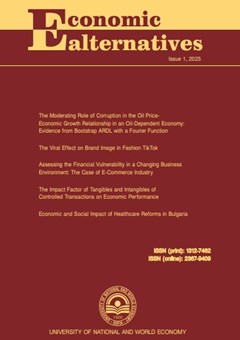Doughnut Economics: Exploring a New Alternative Sustainable Model
Authors: Ramil I. Hasanov, Nurlan N. Azizli
Abstract
The orientation of the modern economy towards sustainability is imperative for shaping the economic systems of the future. This research paper presents a comprehensive analysis of the fundamental underpinnings and provides an eco-economic overview of the Doughnut model. The essence of this academic endeavor revolves around the model’s analytical approach to pivotal economic indicators, including GDP, economic growth, and environmental factors. The model’s central objective is to address income inequality, which remains despite GDP growth, with affluent segments benefiting more, as indicated by the Gini coefficient. A historical analysis from 1820 to 2020 shows fluctuations in this coefficient, peaking in 1910 and 2000 and decreasing to 0.67 by 2020. The Doughnut model’s critique of GDP and economic growth, while facing opposition from traditional economic theory, requires a comprehensive economic evaluation through an examination of development experiences in selected countries to bridge the gap between theory and practice for potential adoption as an economic framework. This exploration of the innovative Doughnut economic model significantly enriches the ongoing strategic discourse aimed at steering society towards a sustainable future.

